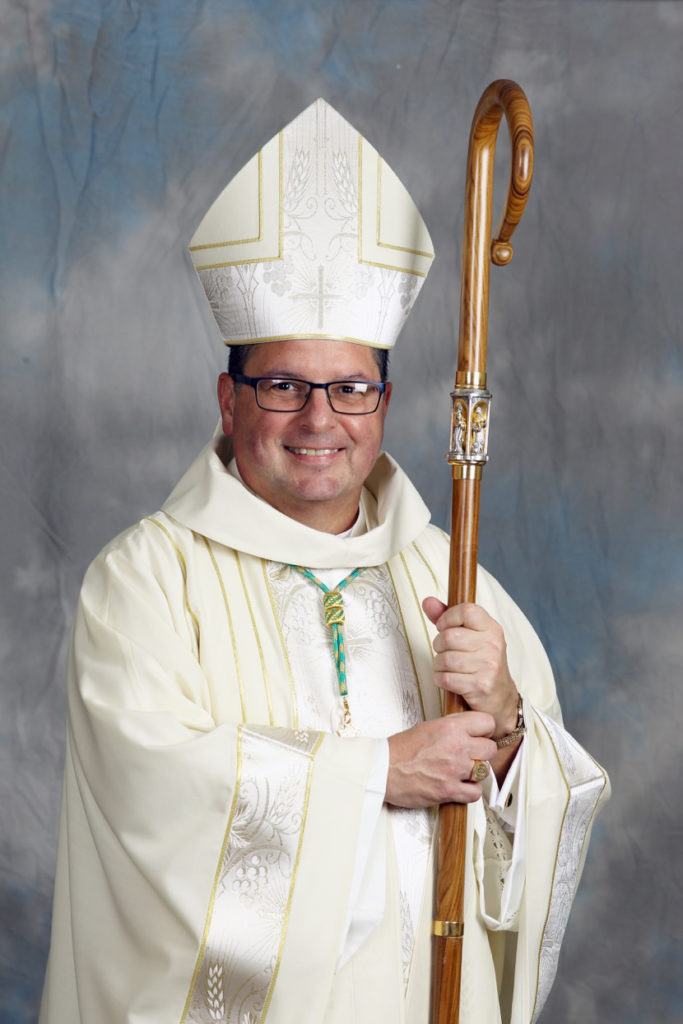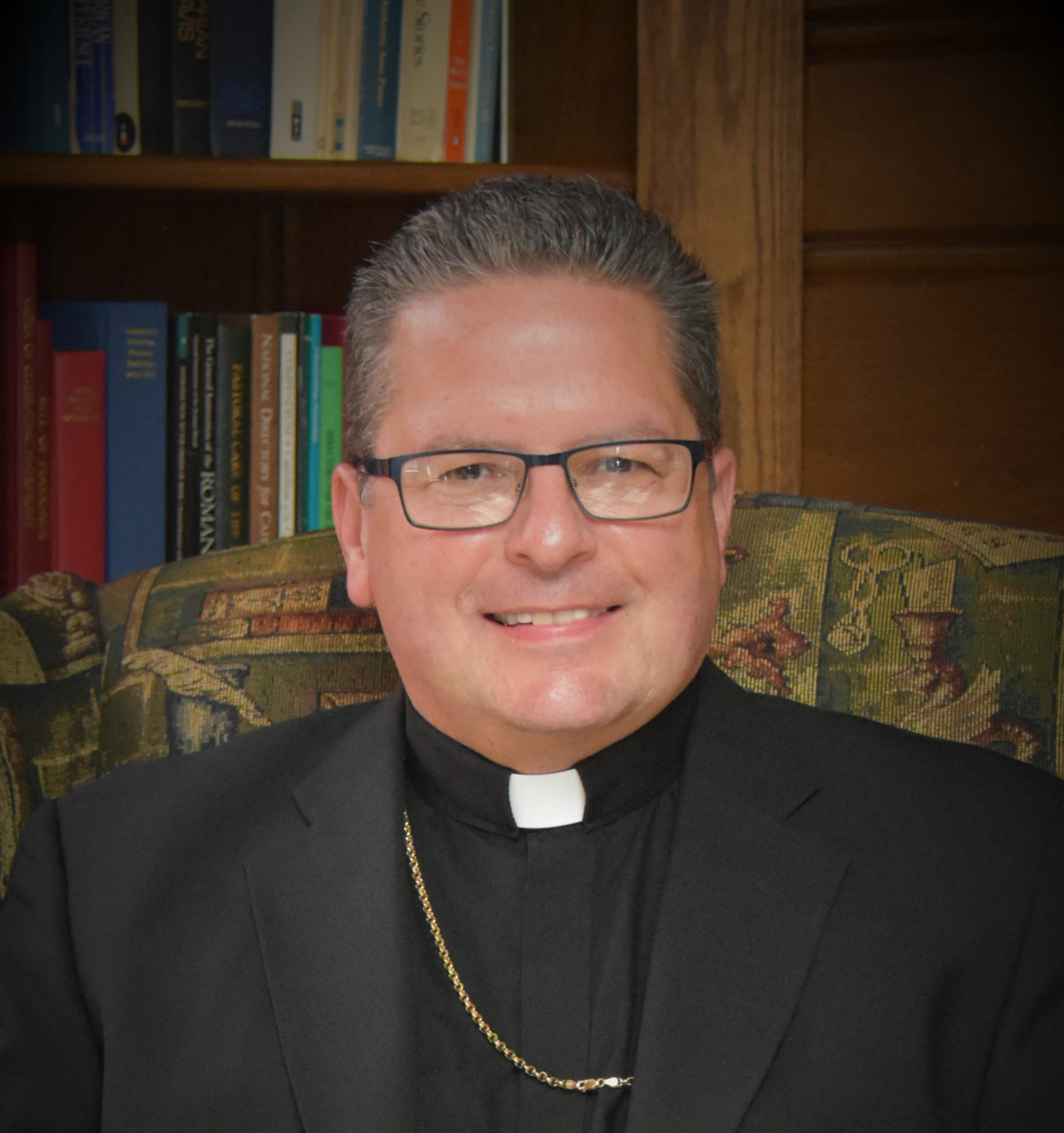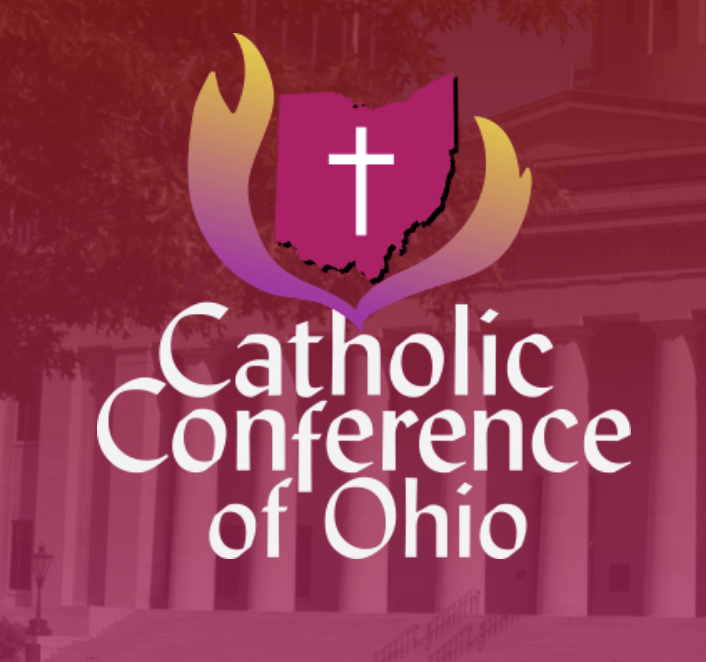MOST REV. DAVID J. BONNAR
Bishop of Youngstown
This is Bishop Bonnar’s July 7, 2022 homily for the Mass for the Cause of Servant of God Rhoda Wise at St. Peter Church in Canton, Ohio. Find out more about Rhoda Wise and her life of holiness at doy.org/rhoda-wise.
“The more I called them, the farther they went away from me.”
These words from the lips of the prophet Hosea in today’s first reading are so revealing. On the one hand, they illustrate a popular biblical image of God, namely, that God is one who calls people into a special relationship, usually for a particular purpose. On the other hand, these words from the prophet demonstrate that not everyone who is called responds.
In his 59th World Day of Prayer for Vocations Message, Pope Francis states, “The word ‘vocation’ should not be understood restrictively, as referring simply to those who follow the Lord through a life of special consecration. All of us are called to share in Christ’s mission to reunite a fragmented humanity and to reconcile it with God.”
We are here tonight to acknowledge once again God’s call to the Servant of God, Rhoda Wise and to celebrate her response. It is interesting how God’s call often occurs in the ordinariness of life through prayer, events, and people. It is also not uncommon for this call to manifest itself through a consolation or a desolation of some kind. When we look at the life of Rhoda Wise, we know that she suffered much, but in that suffering, God spoke to her heart.
Rhoda Wise responded to that suffering in faith. But this faith was aided again and again by certain people who accompanied Rhoda and helped her to unpack the call, most notably, the sisters of Charity of Saint Augustine who introduced Rhoda to the Blessed Mother with the Rosary and Saint Therese. Sister Clement took the lead in instructing Rhoda in the faith. The accompaniment of the sisters became a moment of grace for Rhoda Wise. Indeed, so often God places people into our lives to draw us closer to him and to behold his personal call to us. Monsignor George Habig, pastor of Saint Peter Church, was yet another person who accompanied Rhoda, bringing her into the faith.
This process in which we find ourselves, presenting the life of Rhoda Wise for consideration of sainthood, is an opportune time for us to behold our own call from God and to renew our response. Pope Francis notes that this vocation begins with God’s gaze that is directed at everyone. The Holy Father states, “Our lives change when we welcome this gaze.” Rhoda Wise welcomed this gaze with a growing faith. But in her case, it became more than just a gaze. There were actual apparitions.
We know from our study of theology that God’s grace builds on nature. While God’s grace is amazing and powerful, it is often steady and subtle. Living in a world of instants, we need to remind ourselves that God’s grace works over the continuum of time and demands trust and patience. In a certain sense, our spiritual lives are like a journey. Like babies who first crawl, then walk, and then run, there is a progression to our spiritual lives. We cannot live our adult lives on an 8th grade faith. We need to keep journeying forward always seeking, praying, loving, learning, and growing.
In the first reading today, Hosea uses that image of walking. He says, “Yet, it was I who taught Ephraim to walk, who took them in my arms; I drew them with human chords, with bands of love; I fostered them like one who raises an infant to his cheeks.”
The spiritual journey is one that calls us to walk always toward God. Sometimes, as the psalmist reminds us in Psalm 23, we walk through the valley of darkness, but we fear no evil for the Lord is with us. Saint Paul says it differently in his Second Letter to the Corinthians, “We walk by faith and not by sight.” (2 Corinthians 5:7)
Of course, this faith, which becomes the compass for the human journey, needs to be nourished and sustained through the Sacraments. Rhoda believed in vitality of the Sacraments, having received her First Holy Communion from Monsignor Habig and her Confirmation from the first Bishop of Youngstown, Bishop McFadden.
Bishop McFadden strongly believed that one could not walk in this world without the Holy Eucharist and the sustained loving gaze of Jesus. In fact, in the early stages of his episcopate the bishop commissioned a book to be written entitled, “The March of the Eucharist.” In the preface of the book, Bishop McFadden wrote, “Devotion to Christ the King in the Eucharist is the source and inspiration of all Catholic Action. The Church has no greater power to strengthen those souls who work to devote their lives to the service of Christ, than the most Blessed Sacrament.”
This year our commemoration of the life of Rhoda Wise coincides with the Eucharistic Revival. The word “revive” is defined as “improving the position or condition of.” We could never improve the person of Jesus and the Holy Eucharist which remains his body, soul, and divinity. Nevertheless, one thing we can improve and revive is our relationship with Jesus by renewing our devotion, reverence, and respect for him in the Holy Eucharist. Like Rhoda Wise, we can seek to behold our Lord in our sufferings and, in those sufferings, allow ourselves to become more like Christ—blessed, broken and shared. And with the whole Church we can come to appreciate all-the-more the Holy Eucharist as “the source and inspiration of all Catholic Action” beholding it as the Church’s greatest power to feed our faith so that like Rhoda Wise we can generously and faithfully respond to God’s call.



